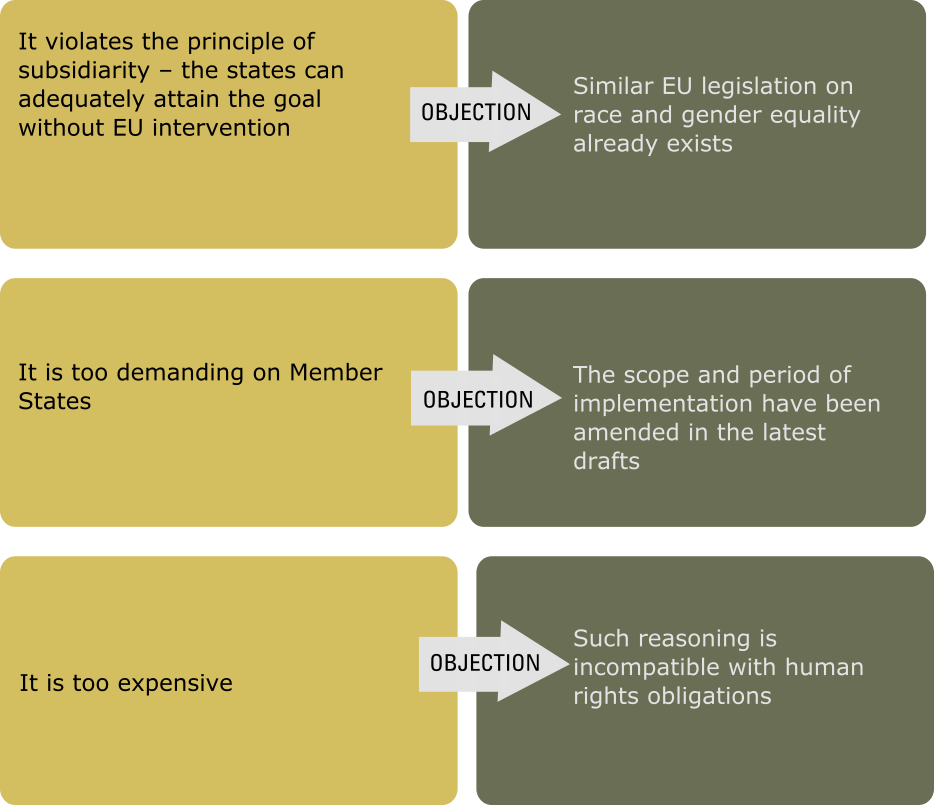European Parliament tools, sources and resources
3. How to search on the Legislative Observatory
3.2. What are the reasons and effects of the block?
The "key events" reported in the procedure file bring us back to the debate in the Council of 11 December 2014 and mentions in particular the position of Germany.
The case of Germany
Germany is one of the countries blocking the horizontal Directive which could provide more people in Europe with the same rights as German citizens.
In 2006, Germany adopted the General Equal Treatment Act/ Allgemeine Gleichbehandlungsgesetz (AGG). The main objective of this act is the protection of people living in Germany against discrimination on the basis of their race, ethnicity, gender, religion or belief, age, disability, or sexual orientation. The protection provided applies to both labour and civil law. So why is Germany opposing this directive?
In summary, here are the three main reasons given against the Directive and the objections that can be raised:

Italy, on the other hand, approved the directive after the European Affairs Commission deemed it in line with the principle of subsidiarity.
The position of member countries that oppose the approval of the Directive influences people's decisions regarding the exercise of their right to move freely for travel, work, or study. It also makes it more difficult for those who supply goods and services to operate across borders. The difference in protection from discrimination at a national level and at the EU level also means that cases of discrimination cannot be dealt with consistently and that victims of discrimination have unequal means depending on the Member State to remedy them.
Source: Commission Staff Working Document (ENG)
Finally, thanks to EP audiovisual resources, we can watch the aforementioned plenary speech by MEP Sophie in't Veld who in 2014 denounced the underlying political reasons why the directive would not be approved.